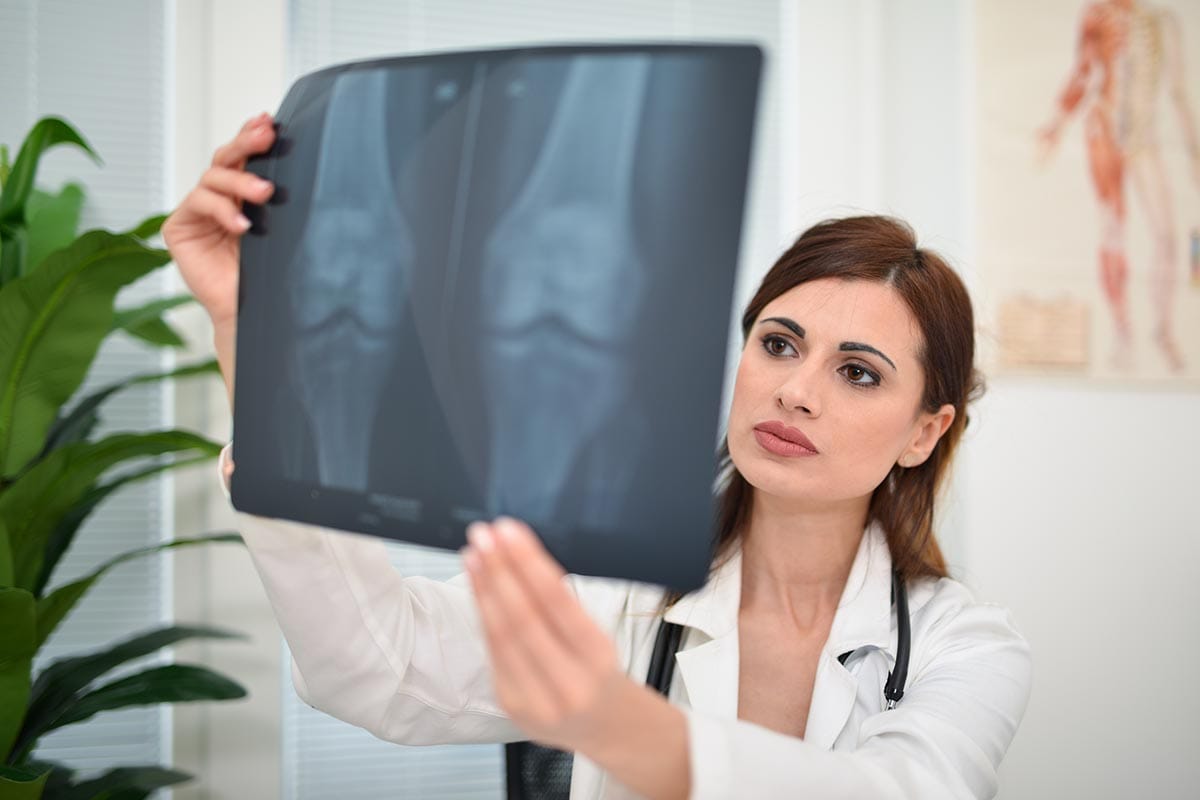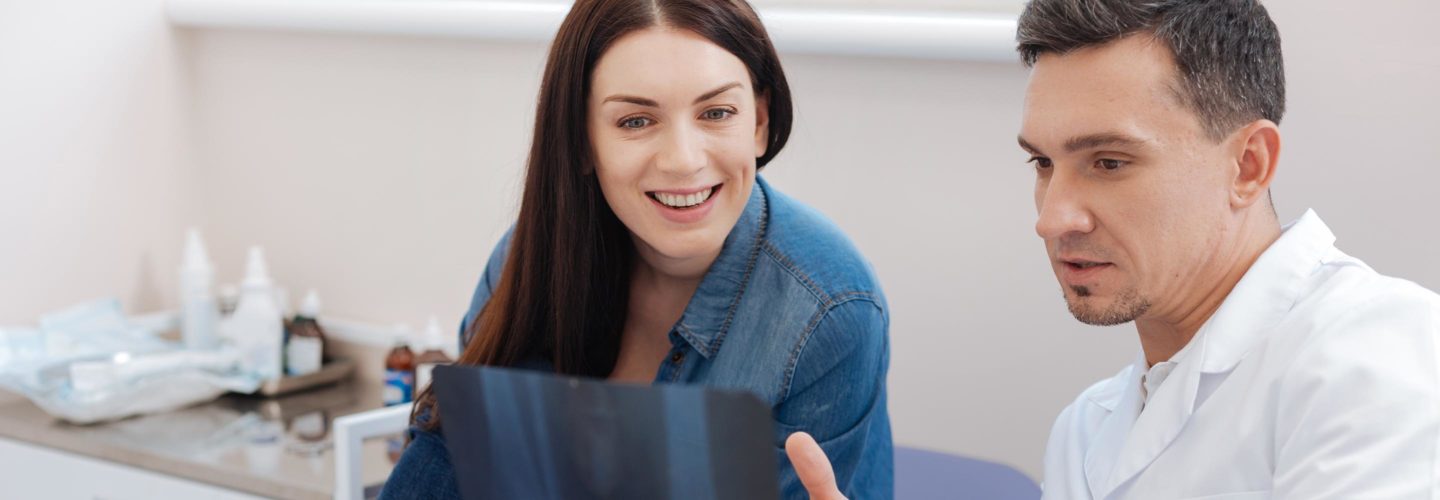Advanced diagnostics and treatments for rheumatic issues and conditions
Rheumatic issues and diseases happen when your immune system begins to attack your own body and tissues – sometimes this is caused by environment or pollutants, genetics or infection. Symptoms can be wide-ranging and may include fatigue, swelling, joint pain or stiffness, inflammation, rash and many others. Depending on their severity, you may have lived with these symptoms for years, or even attributed them to other illnesses or diseases. Rheumatic conditions often have symptoms that may seem like other conditions. Symptoms may flare up at certain times and almost disappear at other times, masking the real disease and prolonging discomfort or pain.
When you have a rheumatic condition, you need coordinated care to properly diagnose, treat and manage your symptoms, getting you back on the road to good health. We also perform bone density scans known as dual-energy X-ray absorptiometry (DEXA) scans to help screen and manage osteoporosis.

Conditions we treat
Sometimes, you can successfully manage your condition with diet, exercise and medication. For some cases, a more complex treatment plan may be required. If you’ve suffered from rheumatic symptoms or your primary care provider suspects you may have a rheumatic condition, Maimonides can help. Our rheumatology experts understand the wide range of symptoms caused by rheumatic conditions and how to manage them.
Our rheumatologists collaborate to design a treatment plan for your unique situation. Working closely with your primary care provider, pharmacist and other specialists ensures that you have a coordinated approach to care.
While there are hundreds of rheumatic conditions and connective tissue disorders, here are a few of the most common that our experts treat:
- Ankylosing Spondylitis
- Dermatomyositis
- Gout
- Lyme arthritis
- Osteoporosis
- Rheumatoid arthritis (RA)
- Scleroderma
- Sjogren’s syndrome
- Systemic lupus erythematosus
- Polymyalgia rheumatica
- Polymyositis
- Psoriatic arthritis
- Temporal arteritis
- Vasculitis
Testing and Diagnostic Services
The board-certified rheumatologists at Maimonides are highly specialized in connective tissue, autoimmune and rheumatic issues. Once diagnosed, they provide a treatment plan designed for your unique needs. Depending on the complexity of the condition, some testing may be required to properly diagnose your condition and design your treatment plan. We can conduct various blood tests and body scans to help detect and diagnose a variety of rheumatic conditions.
Our state-of-the-art GE bone densitometer helps us measure bone density to accurately diagnose osteoporosis and determine if treatments are working. A bone density test is a simple X-ray test which is recommended if you are:
- a woman 65 years of age or older
- a man 70 years of age or older
- have had fractures as an adult
- have lost a significant amount of height
- are taking certain medications, like prednisone
- have certain intestinal disorders, like celiac disease and inflammatory bowel disease
- have certain thyroid and parathyroid disorders
- are being treated for breast or prostate cancer with certain medications
If your situation fits into any of these categories, please ask your primary care doctor, endocrinologist, gastroenterologist or oncologist if you need a bone density test.
Learn more about
Gout
Gout is a form of arthritis that involves a sudden and severe pain, swelling, redness and tenderness in one or more of your joints. Commonly, gout occurs in the big toe. A gout attack can flare up randomly, often happening at night. Gout is the result of a buildup of urate crystals in your joint(s, which could form after levels of uric acid in your body are too high or aren’t being excreted properly. Risk factors include diet (certain foods and beverages increase levels of uric acid), weight, genetics, age and certain medications.
Osteoarthritis
Osteoarthritis (OA) is the most common form of arthritis, occurring most frequently in the hands, hips and knees. OA causes the cartilage in a joint to wear down, affecting the structure of the bone beneath and causing pain, swelling and stiffness. People can develop OA as a result of aging, with women being more likely to develop it, especially after age 50. Weight also plays a role, along with joint overuse or injury, genetics and ethinicity – some Asian populations are at a lower risk for OA. Treatments typically include physical therapy, medications like OTC pain relievers and supportive devices like canes if more severe.
Osteoporosis
Osteoporosis is a disease that weakens the bones, giving you less bone mass and strength. This can lead to sudden and often unexpected fractures. In fact, osteoporosis is typically unnoticed due to a lack of pain or any other symptoms until the weakened bones fracture. The bones most commonly at risk of fracture include the hip, wrist and spine. Women are much more likely to develop osteoporosis than men. The odds of a fracture go up significantly after age 50. Family history and ethnicity are also linked to risk for developing osteoporosis. Some minor symptoms that could indicate a drop in bone density leading toward osteoporosis include a loss of height, change in posture, or shortness of breath. Treatments for osteoporosis include exercise, supplements and medications.
Rheumatoid arthritis
Rheumatoid arthritis (RA) is an autoimmune and inflammatory disease, which means you’re your immune system mistakenly attacks healthy cells in the joints causing pain and swelling. RA most commonly affects the hands, wrists and knees. Chronic pain, poor balance and deformity are other symptoms that can result from the joint damage done by RA, but RA can also affect other tissues throughout the body. Though the specific causes of RA are unknown, certain risk factors like age, sex and genetics affect the likelihood that a person develops RA. Adults over age 60 are at greater risk, and women are at greater risk than men. Other risk factors include smoking and obesity. A proper diet and exercise are two important tools to manage RA, and certain medications can help treat it.
Contact us
4813 9th Avenue, Brooklyn, NY 11220
718-283-8519


